Lung Cancer — Chemotherapy: treatment in the Best Hospitals of Germany
Treatment prices are regulated by national law of the corresponding countries, but can also include additional hospital coefficients. In order to receive the individual cost calculation, please send us the request and medical records.
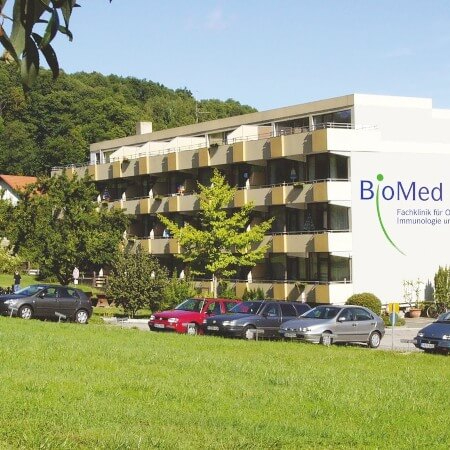
Department of Oncology and Alternative Medicine
The Department of Oncology and Alternative Medicine offers comprehensive medical care for patients with various types of cancer. The medical facility uses unique treatment regimens based on conventional methods of modern medicine, complemented by various types of alternative therapy, diet therapy, physiotherapy and psychotherapy. The department also performs a large number of hyperthermia procedures (more than 14,000 annually). The department's doctors specialize in deep regional hyperthermia, whole body hyperthermia, superficial hyperthermia, combined intracavitary chemo- and hyperthermia. The procedures involve exposure of the malignant tumor to high temperatures, reaching 41-45°C. The goal of hyperthermia is to suppress the recovery of tumor cells from damage caused by radiation and drug therapy. The department's doctors also use physiotherapy, diet therapy, psychotherapy and other techniques to activate vitality. Thus, the human body itself helps to destroy cancer cells. The department's medical team prefers an individual approach to each clinical case, therefore, each stage of treatment is determined depending on the specific diagnosis, stage of the disease, age and general condition of the patient.
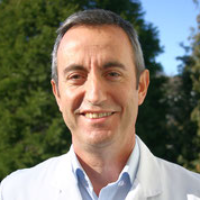

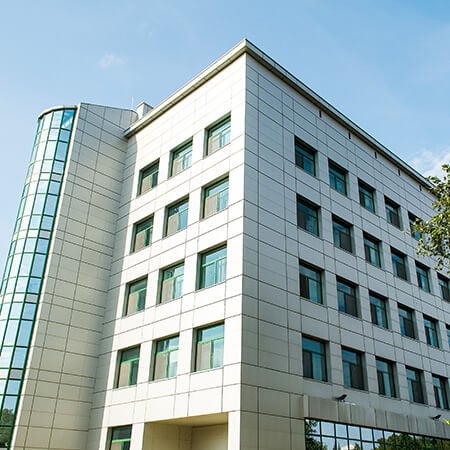
Department of Hematology and Oncology
The Department of Hematology and Oncology provides the full range of medical services in the areas of its competence. The department specializes in the diagnostics and treatment of benign and malignant diseases of the hematopoietic system, as well as solid tumors of various localization. The department's doctors focus on the patients with acute and chronic leukemia, malignant lymphomas, malignant tumors of the gastrointestinal tract, lungs, breast, female reproductive organs, prostate gland, soft tissues and bones. The patients with advanced cancer are offered high quality palliative care to relieve pain and improve their quality of life. The department regularly holds interdisciplinary tumor boards with the participation of oncologists and doctors from related medical specialties. These tumor boards serve for considering each clinical case individually and careful planning of the subsequent treatment. When developing a treatment regimen, the doctors take into account all the slightest clinical aspects, which guarantees a successful treatment outcome. In addition, the department's doctors take part in many national and international research projects. Therefore, in addition to classical treatment methods, they can offer the very latest drugs and therapeutic methods, which have proven their high efficiency during clinical trials.
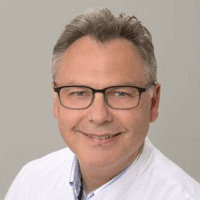

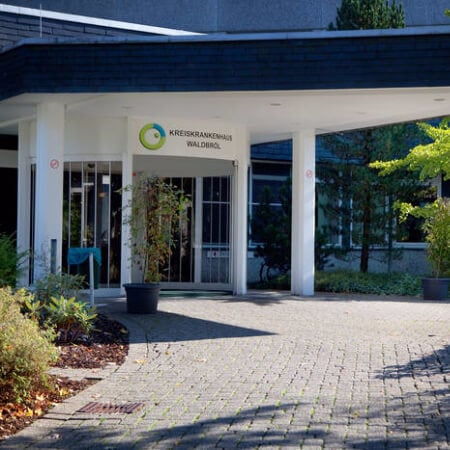
Department of Oncology and Hematology
The Department of Oncology and Hematology provides medical care for patients with cancer of the internal organs and hematopoietic system. The department's doctors are highly competent in the treatment of lung cancer, lymph node cancer, leukemia, and gastrointestinal cancer. The specialists also demonstrate success in the treatment of prostate, kidney, bone, and soft tissue cancers. An innovative approach to treatment involves tumor genetic testing to identify individual molecular targets, the impact of which will inhibit tumor growth and metastasis. The department's doctors also provide palliative care to patients with incurable cancers. The department's doctors offer patients treatment programs adapted to their clinical case, including the use of antibodies and immune checkpoint inhibitors. Thanks to the high professional competence of the physicians, the patients of the medical facility also receive safe and effective chemotherapy with minimal side effects. All treatment regimens are elaborated by the interdisciplinary team of the Cancer Center Oberberg. Medical care may be provided both on an outpatient and inpatient basis. The department has 30 beds for the hospitalization of patients.
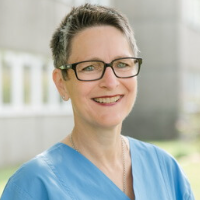


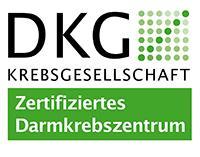

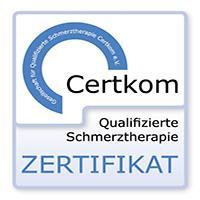
Chemotherapy is the main treatment method of lung cancer in most patients. This disease is usually detected at the advanced stages, when it is no longer possible to remove the tumor surgically. If the operation is performed, chemotherapy is usually prescribed after the operation for the destruction of the remaining cancer cells and prevention of a relapse.
In what cases can chemotherapy be applied?
Cytotoxic drugs can be used at all stages of cancer. The main types of chemotherapy are:
- Adjuvant chemotherapy is used after surgery to reduce the risk of tumor recurrence
- Neoadjuvant chemotherapy is used before surgery to reduce the size of the neoplasm and to make lung cancer resectable
When treating small-cell lung cancer, the surgical method is usually used only at the first stage. Chemotherapy is performed to prevent a relapse after surgery. Starting from the second stage, this treatment method becomes the main one. It helps to restrain tumor growth for some time.
When treating small-cell cancer, the surgery can be performed at the stages 0, 1, 2. Some patients can also be operated at stage 3 lung cancer. After the removal of the neoplasm at the stage 0, chemotherapy is usually not required. After the removal of tumor at the stage 1, chemotherapy is sometimes prescribed for the patient, but only in the cases when the risk of a relapse is rated as high. Starting from the second stage, chemotherapy is always prescribed for the patient upon the surgical treatment completion.
After the removal of a malignant tumor, cancer cells can sometimes be detected at the edges of the removed tissue. In this case, either a second operation or a course of chemotherapy with irradiation is required to reduce the likelihood of a relapse.
When chemotherapy cannot be applied?
Chemotherapy cannot be used in the following cases:
- After the removal of non-small-cell tumor with a small size (stage 0 or 1)
- In poor somatic health, when chemotherapy can lead to dangerous complications
- In patients who do not tolerate chemotherapy (in this case, radiation therapy can be prescribed instead of it)
For most patients with lung cancer, chemotherapy remains the main treatment method, because malignant tumors are usually detected at the advanced stages, after the onset of symptoms. The doctors perform surgery in only 10-15% of patients with lung cancer. Other patients are treated by means of conservative methods.
How is chemotherapy carried out?
In most cases, chemotherapy is administered to the patient intravenously. It can be intravenous injections or infusions (droppers). Sometimes a central venous catheter is inserted, through which drugs are administered to the patient.
Chemotherapy is carried out cyclically. One cycle is about 1 month. In total, the patient requires from 3 to 6 such cycles. The duration of therapy depends on the following aspects:
- Stage of lung cancer
- Effect of treatment
- Number of side effects
More cycles of chemotherapy are required for patients with metastatic lung cancer. These patients can additionally undergo targeted therapy, immunotherapy and irradiation.
Supportive chemotherapy is prescribed for some patients. It is indicated only to those who respond well to the treatment and achieve remission due to chemotherapy.
Sometimes a person stops responding to treatment. The tumor does not decrease in size or continues to increase even with chemotherapy. In this case, the regimen is changed, drugs of another pharmacological group are prescribed. Other treatment options are immunotherapy or targeted therapy.
Side effects
Chemotherapy always causes side effects. The treatment is especially badly tolerated by elderly and weakened patients. Poor health can be a reason for chemotherapy limitation, but the age itself cannot be a contraindication. Even elderly people can undergo chemotherapy, if they are healthy enough for it.
The following side effects of chemotherapy occur after using most drugs:
- Hair loss
- Nausea
- Vomiting
- Functional bowel disorders
- Weight loss
Some drugs damage peripheral nerves. Clinically, this is manifested by tingling, burning in the limbs, feeling of heat or cold, muscle weakness. These phenomena usually disappear some time after drug withdrawal, but in some patients they persist for a long time.
Chemotherapy, especially prolonged one, always inhibits the hematopoietic function of the red bone marrow. The level of red blood cells in the blood decreases in patients, which is clinically manifested by weakness, shortness of breath, skin paleness and rapid pulse. In the case of decrease in platelet count, blood clotting becomes impaired bruises occur on the body and gums bleed. Due to the insufficient production of leukocytes, the immunity deteriorates and the risk of infectious diseases increases.
Treatment in Germany with the Booking Health company
You can undergo a course of chemotherapy treatment in Germany by booking the program via the Booking Health service at an affordable price. We provide the following benefits:
- Selection of the best clinic for the treatment of lung cancer, which specializes in this disease and achieves better results.
- Reduced costs for medical services up to 50% due to the lack of overpricing and additional coefficients for foreign patients.
- Booking an appointment on the most suitable dates for you.
- Preparation of the program, taking into account previously performed examinations.
- Establishment of communication directly with the attending physician.
- Monitoring of the program at all its stages.
- Control of invoices, return of unspent funds.
- Buying and forwarding medicines.
- Organization of additional diagnostic or therapeutic procedures.
- Communication with the clinic upon treatment completion.
The Booking Health company will provide top-class services. Our employees will book a room for you at the nearest hotel to the Cancer Center, help you to prepare the documents and book airline tickets, arrange a transfer from the airport to the hotel or clinic, and then provide a return transfer upon the program completion.

